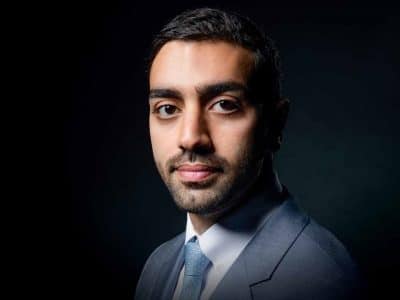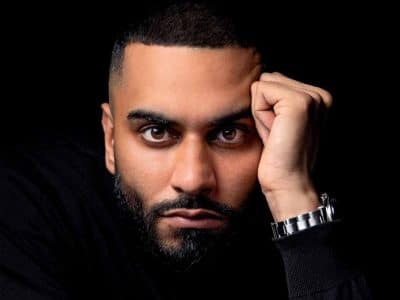Saudi Arabia granted women the right to vote for the first time in its modern history as part of changes King Abdullah said will let them run in future municipal elections.
“We refuse to marginalize the role of women in Saudi society in every field of work,” Abdullah said Sunday on state television as he inaugurated a new session of the council. “Women have the right to submit their candidacy for municipal council membership and have the right to take part in submitting candidates in accordance with Shariah.”
Saudi Arabia enforces gender restrictions interpreted from the Wahhabi version of Sunni Islam. Men and women are strictly segregated in public, including at schools, restaurants and lines at fast-food takeouts. That keeps women out of sales jobs in malls and stores, unless the outlet caters exclusively to a female clientele.
The king also said yesterday women can now be part of an advisory council to him. Abdullah, who was born in 1924, has promised to improve the status of women and opened the first co- educational university in 2009. He appointed the kingdom’s first female deputy minister, Nora bint Abdullah al-Fayez, the same year and has said he will provide women more access to jobs. Women are still not allowed to drive.
“We hope that with Saudi women going to the municipal council, they will be able to drive in the future,” Ibrahim al- Mugaiteeb, president of the Human Rights First Society, said in a phone interview from al-Khobar yesterday. “It is a huge step forward.”
The Riyadh-based council, a 150-member assembly, is appointed by the king to advise on legislation. The assembly consists of 12 committees, covering topics such as human rights, foreign affairs and energy. The council, whose current speaker is Abdullah Al al-Sheikh, is permitted to propose draft laws and present them to the king.
Abdullah said the decision was taken “after consultations with many of our scholars, especially those in the senior scholars council, and others,” who supported this move.
“The whole issue was about enfranchising women into the political process,” Mohammed al-Qahtani, a Riyadh-based democracy activist, said by phone yesterday. “For women, obviously, it is a good step.”
Saudi Arabia will hold municipal elections on Sept 29 without the participation of women. The next vote is in 2015. About 1.2 million all-male voters have registered to elect 816 municipal council members in the kingdom’s second municipal elections.
The Shoura Council agreed in June that the Ministry of Municipal and Rural Affairs should complete procedures that will let women vote in municipal elections “in line with Islamic law,” the official Saudi Press Agency reported. In 2005, Saudi Foreign Minister Prince Saud al-Faisal said women may be allowed to vote in future municipal elections.
This is the second decision the king has taken since June that addresses longstanding demands made by women. That month, the king also issued a royal decree requiring that only women work in “shops selling women’s necessities.” The move triggered a Labour Ministry order to lingerie shops and make-up stores to switch their male staff with women.
Article continues on the next page…
“The decision to allow women to participate in elections and vote in the Shoura Council is the first step forward in allowing half of Saudi society to have a chance to contribute to development in the kingdom,” Olfat Kabbani, vice chairman of the industrial committee at the Jeddah Chamber of Commerce and Industry, said in an e-mailed statement.
UK Foreign Secretary William Hague called the proposals a “significant step forward for the people of Saudi Arabia,” the Foreign and Commonwealth Office said in an e-mailed statement.
The UK “strongly supports moves to increase the political and economic participation of women across the Arab world” and looks forward to “examining the full details of the proposed changes and how they will work in practice,” Hague said, according to the statement.
Women in Saudi Arabia got behind the wheels of their cars in June to challenge the world’s only ban on driving by females. The plan to get women with international driving licenses out in their cars followed a campaign that led to the detention of one of the activists, Manal al-Sharif.
Saudi Arabia, the world’s biggest oil exporter, is an absolute monarchy and has been ruled by six kings since it was established in 1932.
This was the second televised speech Abdullah gave to the nation this year. In March, Abdullah ordered sweeping increases in spending, including $67bn on housing and funds for the military and religious groups that backed the government’s ban on domestic protests.
That speech came as the Middle East witnessed unprecedented unrest as popular movements toppled leaders in Egypt, Libya and Tunisia. Violent clashes persist in Saudi Arabia’s neighbors, Yemen and Bahrain. The world’s largest oil supplier didn’t experience political unrest, though there were limited protests held by the Shiite minority in the kingdom’s Eastern Province.
Saudi Arabia celebrated its National Day on Sept. 23. King Abdullah initiated the holiday in 2005 when he came to power. Traffic stopped in Riyadh as young men danced on the streets, blasted music from their cars and waved national flags as religious police watched on without intervening.
“We are determined to spend on large-scale projects on the economic level to make sure that the kingdom is away from any impact of the slowing global economy,” the Saudi Press Agency reported yesterday, citing a written copy of Abdullah’s speech.






